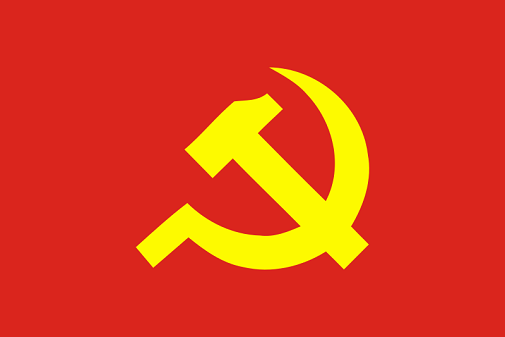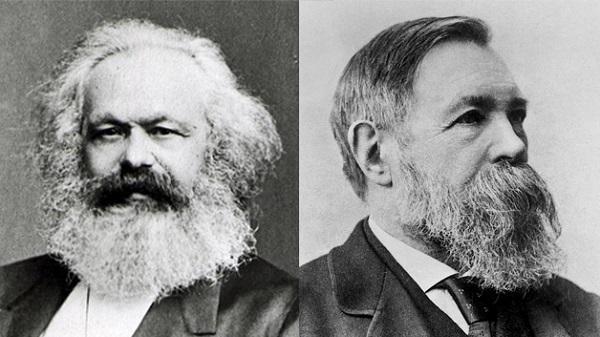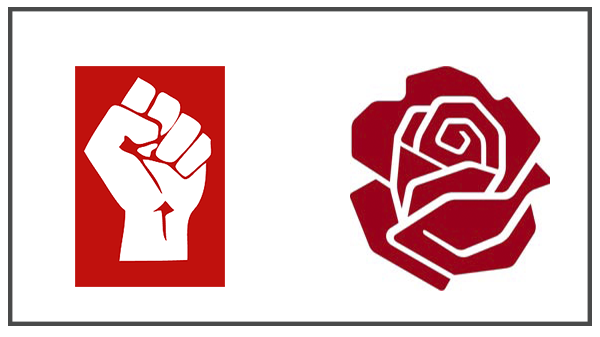Communism and socialism are economic and political structures that, despite having the same goals, are distinct from each other.
Both doctrines are opposed to capitalism and seek to eliminate all types of social inequality, to end the exploitation of workers and, in doing so, to end class division. For these reasons, both communism and socialism are classified on the political spectrum as left regimes.

The hammer and sickle are symbols of communism and socialism and together they represent the union of the industrial working class and agricultural workers.
Although the terms are often used interchangeably, each consists of its own regimen with specific characteristics.
Differences between Communism and Socialism
The main differences between communism and socialism can be seen in the table below:
| Communism | Socialism | |
|---|---|---|
| Government | Communism predicts the total disappearance of the government. |
Socialism does not foresee the end of government. |
| Production Distribution | The production is distributed according to the needs of each one. | Production is distributed according to each person's contribution. |
| Social Structure | Class differences are completely eliminated. |
Class differences are smoothed over. |
| Private property | It is abolished. All goods are common. |
Personal goods such as houses and clothing are the private property of the individual, but the means of production belong to the people (albeit controlled by the state). |
Characteristics of Communism
Communism was conceived by Karl Marx and Friedrich Engels in 1848 through the Communist Manifesto. In the document, the philosophers pointed out that history describes an eternal conflict between the workers (proletariat) and the owners of the means of production (bourgeoisie).

Karl Marx and Friedrich Engels, authors of the Communist Manifesto.
In the manifesto, Karl Marx and Engels described communism as a regime in which all production belongs to the working class and is distributed according to the needs of each one. In this way, in communism there are no rich and poor. Furthermore, in a communist society all individuals work for the same goal and no one gets more for working harder.
Marx predicted that after the communist revolution (which never took place), the proletariat would take control of all means of production and this would cause the disappearance of the government. Next, workers would establish a classless society based on common property, in which production and consumption would reach an equilibrium. Note, therefore, that communism is a regime of far left.
communist countries
Although the term communism is frequently used, no country in the world has managed to establish the ideals foreseen in the Communist Manifesto (especially the total abolition of government). For this reason, experts claim that there was never a truly communist country, but only socialist countries with communist ideals.
However, even not fulfilling the requirements of the regime, throughout history and even today, some countries consider themselves communist, such as:
- China
- North Korea
- Cuba
- Laos
- Vietnam
- Soviet Union
Characteristics of Socialism
Socialism is a political and economic regime that seeks to eliminate social inequalities and class divisions, but does not predict the end of the government.
In socialism, the means of production, despite belonging to the population, are still controlled by the government, which regulates and pays wages that can be spent however the worker wishes. Thus, the administration of resources is delegated to the State, which distributes them equally. Generally, the distribution takes the form of social policies that meet the population's needs such as housing, education and health.

The raised fist (or clenched fist) and the red rose are also symbols related to socialism. The fist represents the resistance against oppression and the rose symbolizes the feeling of community and caring for others.
Although socialism existed before the Communist Manifesto, the most popular sense of the term is heavily based on the ideas of Marx and Engels. In the manifesto, the philosophers criticized some forms of socialism already conceived at the time and described the regime as a mandatory transition stage that precedes communism. The reflections contained in the document served as the basis for the emergence of the so-called Marxism.
Read more about the Characteristics of Socialism.
socialist countries
It is important to clarify that socialism it's not a fixed model and, like any political system, it has several variations around the world. Furthermore, most capitalist countries also implement socialist policies, among which public education, public health, social security, etc. stand out.
Unlike communism (which was never really established), countless countries have already implemented some form of socialist government, such as:
- Venezuela
- Uruguay
- South Africa
- Syria
- Nepal
- Cyprus
- Sri Lanka
See too:
- Marxism
- Communist Manifesto
- Communism
- Socialism
- Characteristics of Communism
